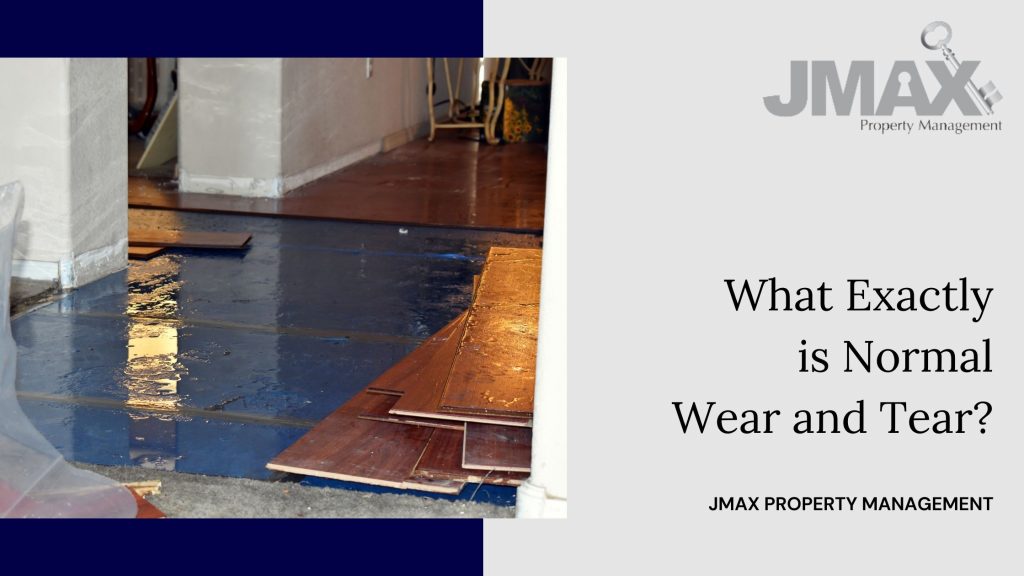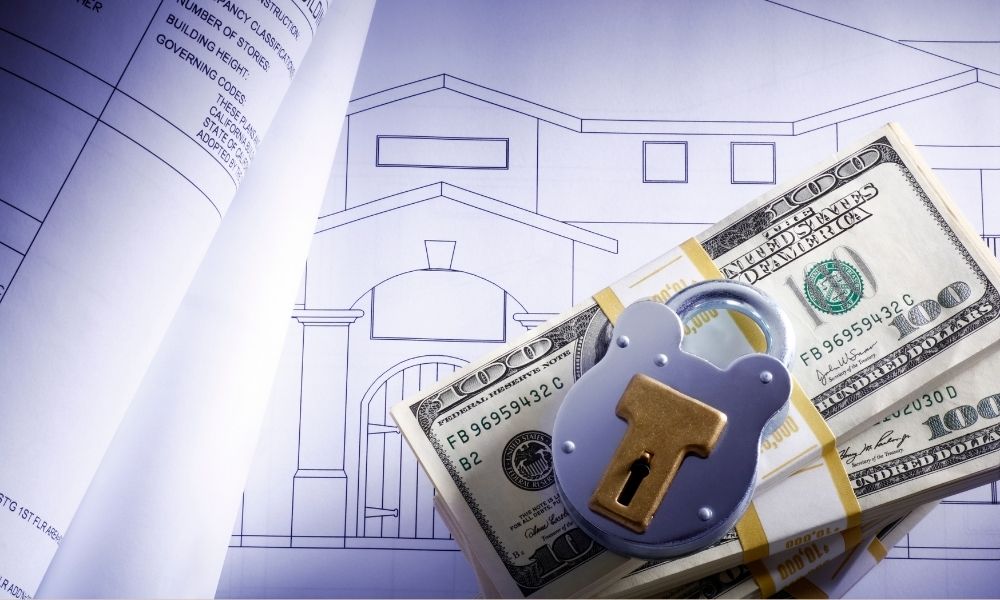
With any rental property, some type of damage is inevitable when you rent it out to a tenant. However, not all damage is alike.
In the following paragraphs by the property managers at JMAX Property Management, we will explain what is considered normal wear and tear and who is responsible for the expenses on the premises.
Defining Terms
To begin, ‘normal’ or ‘reasonable wear and tear’ in rental properties is the expected deterioration of a rental property after several years. It is caused by tenants living in a rental unit. The longer the tenancy, the more ordinary wear and tear you can expect.
As a landlord, it is your duty to fix normal wear and tear. However, if the damage is caused by negligence or abuse from a tenant, you can hold them liable and pull from their security deposits.
Examples of Wear and Tear
In most cases, it is easy to determine what constitutes normal wear and tear. Here are some inevitable property wear and tear:
- Loose floorboards
- Fading or scuffed paint
- Fading carpets and flooring
- Traffic worn areas on carpets
- Loose locks and doorknobs

Examples of Excessive Property Damage
Here are some examples of property damage by a tenant:
- Cracked windows
- Unapproved change of paint on the walls
- Nail holes and drill marks on the walls
- Stained or burned floors or carpets
- Broken doors and windows
Landlord Negligence
As a landlord, you must remember that you also have the responsibility to provide a habitable space to your tenants.
A habitable rental is one that is free of hazards and damage and in line with local and state-wide building code. Conversely, an uninhabitable property is one with disrupted utilities, broken doors or windows and unclean conditions.
Therefore, when a tenant reports an issue or has a maintenance request, it is your responsibility to handle and fix the issue promptly. If there are property damages because you failed to maintain the unit or delayed repairs, then you have to bear the costs of repairs and the tenant cannot be held accountable.
Who Pays for Rental Property Damage?

Generally, you can deduct from deposits in the following scenarios:
- When tenants can’t pay rent
- To repair damages on the premises that go beyond wear and tear
On the flip side, a deposit can’t be used to pay for:
- Damage caused by a landlord’s negligence
- Damage that occurred before a tenant moves in
If you need to deduct from a security deposit to pay for damages, Virginia law requires that you provide an itemized list of deductions. You can face penalties for wrongfully withholding the deposit.
Conflicts regarding the security deposit often arise between a landlord and a tenant. If this happens, disputes over security deposits can be taken to court. In order to avoid potential problems, we recommend having a clear rental agreement and taking before-and-after photos of the rental.
Inspections & Photos
When the tenant moves in, you and your tenant should walk through the unit to document the condition of the unit. Consider taking photos and videos to record existing damages or wear and tear. Do the same during the tenant move-out. In doing so, you will be able to compare the unit before and after. This helps to estimate any damages beyond normal wear and tear.
If excessive property damage is present in the move-out photos, landlords can create an itemized list of how much will be spent on repairs.
Discuss Terms and Expectations
Be proactive. Before signing the lease agreements, discuss what you consider “property damage” with your tenants. In fact, these expectations should be part of the rental agreement and help avoid security deposit disputes.
You can also consider screening your tenants and contacting their former landlords. Make note if they’ve been involved in disputes over excessive property damage. The extra effort of a tenant screening will go a long way in keeping your unit stable and your landlord experience stress-free.

Bottom Line
If damage is caused by normal wear and tear, then you can’t make deductions from a tenant’s security deposit. However, if there is property damage caused by tenant negligence, then you can! If you have any further questions, get in touch with JMAX Property Management today.
We are a property management company ready to help you according to your needs!


